[Anchor]
We continue with news on tariffs.
President Trump's 'tariff policy'.
There are various types, and the criteria for application is often changing.
First, there are reciprocal tariffs.
This is the concept of imposing tariffs to countries equivalent to the trade deficit it has caused the U.S.
Thus, it has been set differently for each country.
For our country, it was 25%.
However, only 10% has been imposed, and the remaining 15% is deferred until July.
This implies a request to bring investment proposals.
In addition, there are tariffs imposed on specific export items.
There is a 25% tariff on automobiles and steel.
These are our key export industries, so the impact is significant.
Following the Minister of Economy and Finance, a government delegation including the Ministry of Trade, Industry and Energy is headed to the U.S. today (Apr. 23).
The biggest task in tomorrow's (Apr. 24) negotiations with the U.S. is to lower the item tariff on automobiles again.
Reporter Ha Nuri has the details.
[Report]
Minister of Trade, Industry and Energy Ahn Duk-geun, along with the first vice minister in charge of automobiles and the head of the automobile division, is heading to the U.S. for the third time since President Trump took office.
[Ahn Duk-geun/Minister of Trade, Industry and Energy: "For automobiles, which have been severely affected by the 25% tariff, we plan to do our best to quickly find a solution."]
Automobiles are the largest export item to the U.S., and since the 3rd, they have been exported with a 25% tariff.
Relevant companies are already experiencing a direct hit as their export routes are blocked.
In fact, looking at the tariff issues reported by small and medium-sized enterprises to the government over the past two months....
More than half were in the automobile and steel sectors, which are subject to the high tariffs.
If this item tariff cannot be lowered, it is expected to have a long-term impact on our entire economy.
The IMF has halved its forecast for South Korea's economic growth rate from three months ago due to the 'tariff shock', lowering it to 1.0%.
This is the largest drop among advanced countries.
The government plans to request a reduction in item tariffs during tomorrow's '2+2 trade consultation' while presenting cooperation proposals in the shipbuilding and energy sectors to the U.S.
[Choi Sang-mok/Vice Prime Minister and Minister of Economy and Finance: "If we listen to the U.S. side's concerns and actively explain our position..."]
However, there is uncertainty as to what agenda the U.S. might suddenly bring up....
The government delegation is preparing with possible subjects ranging from beef imports to defense cost-sharing issues.
This is KBS News, Ha Nuri.
We continue with news on tariffs.
President Trump's 'tariff policy'.
There are various types, and the criteria for application is often changing.
First, there are reciprocal tariffs.
This is the concept of imposing tariffs to countries equivalent to the trade deficit it has caused the U.S.
Thus, it has been set differently for each country.
For our country, it was 25%.
However, only 10% has been imposed, and the remaining 15% is deferred until July.
This implies a request to bring investment proposals.
In addition, there are tariffs imposed on specific export items.
There is a 25% tariff on automobiles and steel.
These are our key export industries, so the impact is significant.
Following the Minister of Economy and Finance, a government delegation including the Ministry of Trade, Industry and Energy is headed to the U.S. today (Apr. 23).
The biggest task in tomorrow's (Apr. 24) negotiations with the U.S. is to lower the item tariff on automobiles again.
Reporter Ha Nuri has the details.
[Report]
Minister of Trade, Industry and Energy Ahn Duk-geun, along with the first vice minister in charge of automobiles and the head of the automobile division, is heading to the U.S. for the third time since President Trump took office.
[Ahn Duk-geun/Minister of Trade, Industry and Energy: "For automobiles, which have been severely affected by the 25% tariff, we plan to do our best to quickly find a solution."]
Automobiles are the largest export item to the U.S., and since the 3rd, they have been exported with a 25% tariff.
Relevant companies are already experiencing a direct hit as their export routes are blocked.
In fact, looking at the tariff issues reported by small and medium-sized enterprises to the government over the past two months....
More than half were in the automobile and steel sectors, which are subject to the high tariffs.
If this item tariff cannot be lowered, it is expected to have a long-term impact on our entire economy.
The IMF has halved its forecast for South Korea's economic growth rate from three months ago due to the 'tariff shock', lowering it to 1.0%.
This is the largest drop among advanced countries.
The government plans to request a reduction in item tariffs during tomorrow's '2+2 trade consultation' while presenting cooperation proposals in the shipbuilding and energy sectors to the U.S.
[Choi Sang-mok/Vice Prime Minister and Minister of Economy and Finance: "If we listen to the U.S. side's concerns and actively explain our position..."]
However, there is uncertainty as to what agenda the U.S. might suddenly bring up....
The government delegation is preparing with possible subjects ranging from beef imports to defense cost-sharing issues.
This is KBS News, Ha Nuri.
■ 제보하기
▷ 카카오톡 : 'KBS제보' 검색, 채널 추가
▷ 전화 : 02-781-1234, 4444
▷ 이메일 : kbs1234@kbs.co.kr
▷ 유튜브, 네이버, 카카오에서도 KBS뉴스를 구독해주세요!
- Trade delegation heads to U.S.
-
- 입력 2025-04-23 23:54:37
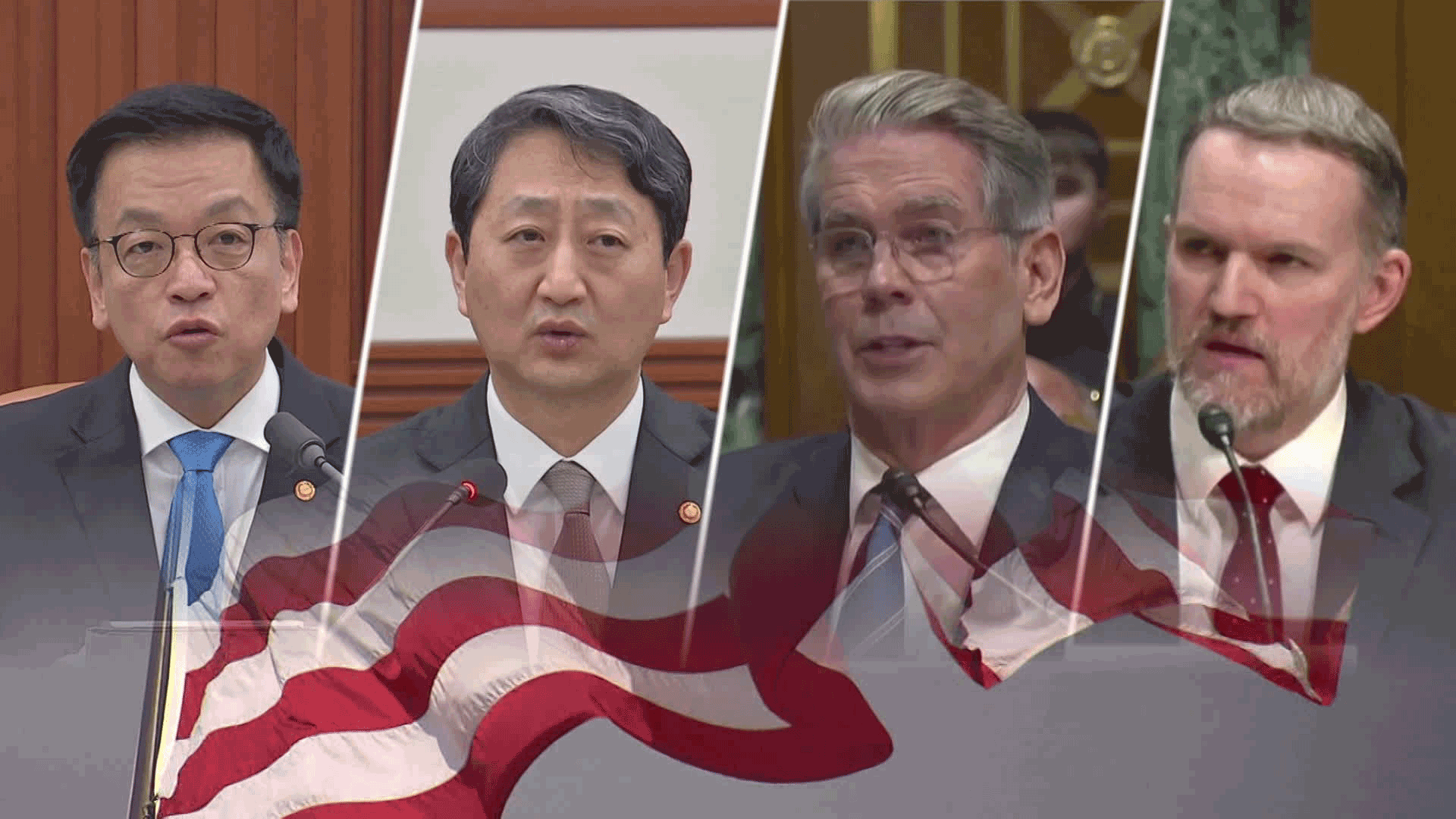
[Anchor]
We continue with news on tariffs.
President Trump's 'tariff policy'.
There are various types, and the criteria for application is often changing.
First, there are reciprocal tariffs.
This is the concept of imposing tariffs to countries equivalent to the trade deficit it has caused the U.S.
Thus, it has been set differently for each country.
For our country, it was 25%.
However, only 10% has been imposed, and the remaining 15% is deferred until July.
This implies a request to bring investment proposals.
In addition, there are tariffs imposed on specific export items.
There is a 25% tariff on automobiles and steel.
These are our key export industries, so the impact is significant.
Following the Minister of Economy and Finance, a government delegation including the Ministry of Trade, Industry and Energy is headed to the U.S. today (Apr. 23).
The biggest task in tomorrow's (Apr. 24) negotiations with the U.S. is to lower the item tariff on automobiles again.
Reporter Ha Nuri has the details.
[Report]
Minister of Trade, Industry and Energy Ahn Duk-geun, along with the first vice minister in charge of automobiles and the head of the automobile division, is heading to the U.S. for the third time since President Trump took office.
[Ahn Duk-geun/Minister of Trade, Industry and Energy: "For automobiles, which have been severely affected by the 25% tariff, we plan to do our best to quickly find a solution."]
Automobiles are the largest export item to the U.S., and since the 3rd, they have been exported with a 25% tariff.
Relevant companies are already experiencing a direct hit as their export routes are blocked.
In fact, looking at the tariff issues reported by small and medium-sized enterprises to the government over the past two months....
More than half were in the automobile and steel sectors, which are subject to the high tariffs.
If this item tariff cannot be lowered, it is expected to have a long-term impact on our entire economy.
The IMF has halved its forecast for South Korea's economic growth rate from three months ago due to the 'tariff shock', lowering it to 1.0%.
This is the largest drop among advanced countries.
The government plans to request a reduction in item tariffs during tomorrow's '2+2 trade consultation' while presenting cooperation proposals in the shipbuilding and energy sectors to the U.S.
[Choi Sang-mok/Vice Prime Minister and Minister of Economy and Finance: "If we listen to the U.S. side's concerns and actively explain our position..."]
However, there is uncertainty as to what agenda the U.S. might suddenly bring up....
The government delegation is preparing with possible subjects ranging from beef imports to defense cost-sharing issues.
This is KBS News, Ha Nuri.
We continue with news on tariffs.
President Trump's 'tariff policy'.
There are various types, and the criteria for application is often changing.
First, there are reciprocal tariffs.
This is the concept of imposing tariffs to countries equivalent to the trade deficit it has caused the U.S.
Thus, it has been set differently for each country.
For our country, it was 25%.
However, only 10% has been imposed, and the remaining 15% is deferred until July.
This implies a request to bring investment proposals.
In addition, there are tariffs imposed on specific export items.
There is a 25% tariff on automobiles and steel.
These are our key export industries, so the impact is significant.
Following the Minister of Economy and Finance, a government delegation including the Ministry of Trade, Industry and Energy is headed to the U.S. today (Apr. 23).
The biggest task in tomorrow's (Apr. 24) negotiations with the U.S. is to lower the item tariff on automobiles again.
Reporter Ha Nuri has the details.
[Report]
Minister of Trade, Industry and Energy Ahn Duk-geun, along with the first vice minister in charge of automobiles and the head of the automobile division, is heading to the U.S. for the third time since President Trump took office.
[Ahn Duk-geun/Minister of Trade, Industry and Energy: "For automobiles, which have been severely affected by the 25% tariff, we plan to do our best to quickly find a solution."]
Automobiles are the largest export item to the U.S., and since the 3rd, they have been exported with a 25% tariff.
Relevant companies are already experiencing a direct hit as their export routes are blocked.
In fact, looking at the tariff issues reported by small and medium-sized enterprises to the government over the past two months....
More than half were in the automobile and steel sectors, which are subject to the high tariffs.
If this item tariff cannot be lowered, it is expected to have a long-term impact on our entire economy.
The IMF has halved its forecast for South Korea's economic growth rate from three months ago due to the 'tariff shock', lowering it to 1.0%.
This is the largest drop among advanced countries.
The government plans to request a reduction in item tariffs during tomorrow's '2+2 trade consultation' while presenting cooperation proposals in the shipbuilding and energy sectors to the U.S.
[Choi Sang-mok/Vice Prime Minister and Minister of Economy and Finance: "If we listen to the U.S. side's concerns and actively explain our position..."]
However, there is uncertainty as to what agenda the U.S. might suddenly bring up....
The government delegation is preparing with possible subjects ranging from beef imports to defense cost-sharing issues.
This is KBS News, Ha Nuri.
-
-

하누리 기자 ha@kbs.co.kr
하누리 기자의 기사 모음
-
이 기사가 좋으셨다면
-
좋아요
0
-
응원해요
0
-
후속 원해요
0










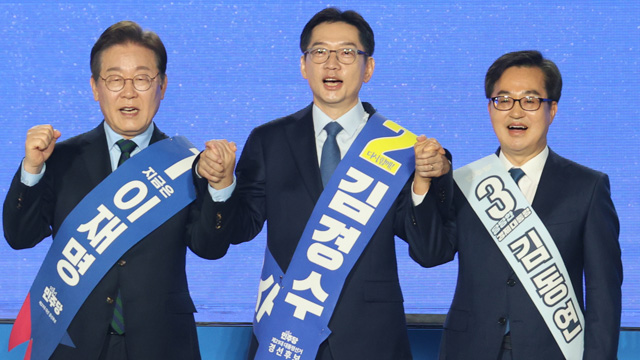
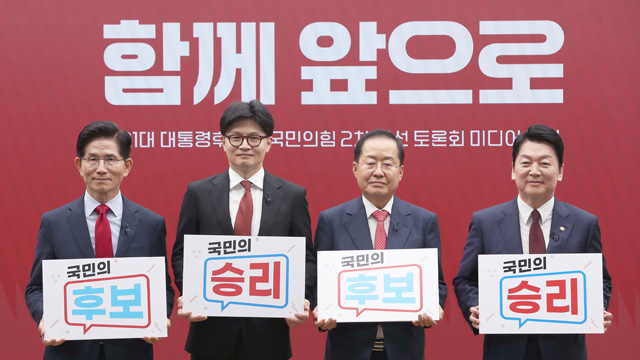
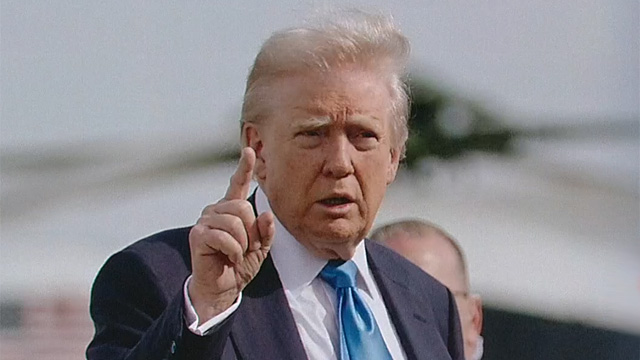
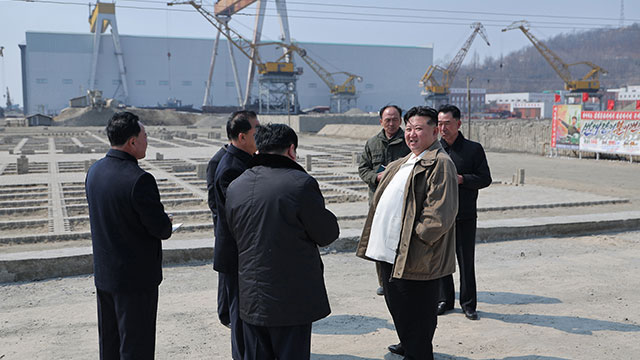

이 기사에 대한 의견을 남겨주세요.